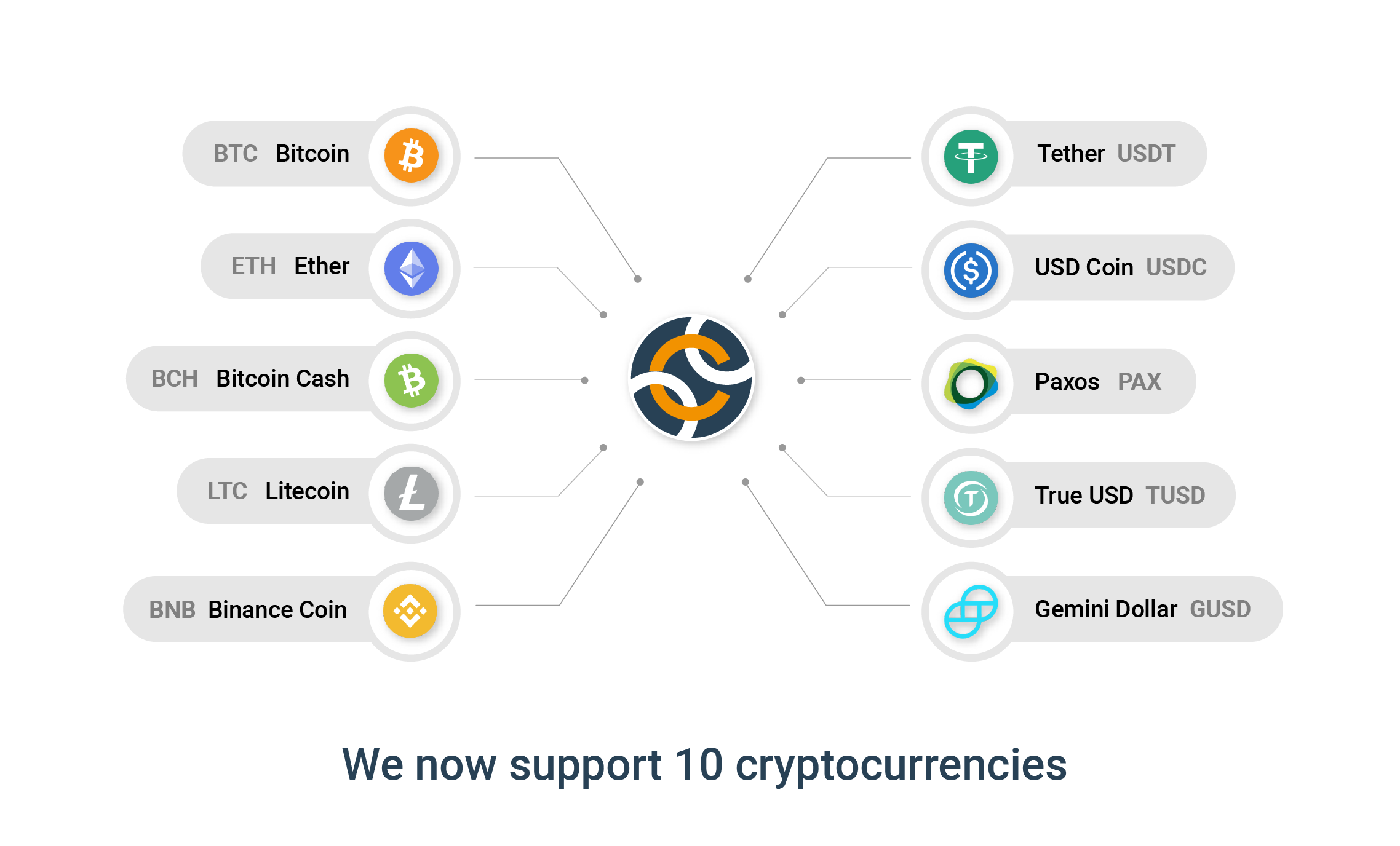Read more about our latest multi-currency updates in our press release
Starting today, Chainalysis customers can perform real-time transaction monitoring and investigations on 10 of the most popular cryptocurrencies, including Bitcoin, Ether, Litecoin, and Tether.
Since 2014, Chainalysis Reactor has been recognized as the leading blockchain analytics tool, playing a critical role in combating exchange hacks, darknet markets, ransomware, and terrorist financing.
Over 100 customers in 35 countries rely on Chainalysis KYT (Know Your Transaction) to screen transactions in real-time and receive alerts on suspicious activity.
Together these solutions allow cryptocurrency businesses, banks, and law enforcement to understand the real-world activity happening on blockchains.
Today’s release marks the culmination of a year-long journey to easily support additional blockchains, while using the same familiar workflows in Reactor and KYT.
You can now enter the name of any service in Reactor and see it represented across all supported cryptocurrencies. Once added to a graph, flows between addresses are mapped using an intuitive user interface overlaid with context from on and off the blockchain. KYT customers can monitor their organization’s total risk exposure across all supported currencies.
To see our latest multi-currency updates in action —> Request a Demo
The 10 cryptocurrencies we support today are Bitcoin, Ether, Bitcoin Cash, Litecoin, Binance Coin, Tether, USD Coin, Gemini Dollar, Paxos Standard, and True USD. More will be supported later in the year.
We’ve identified thousands of real-world services including the top exchanges, merchant providers, darknet markets, and scams. Our team makes hundreds of new identifications every month, increasing data coverage by millions of new addresses.

Why it matters
Cryptocurrencies offer a new way to transfer value never before possible. There are thousands of virtual assets listed for trade on hundreds of exchanges around the globe, with a total market cap of $176B (source: Blockchain Transparency Institute, April 20, 2019).
When these crypto assets enter the traditional financial system, they are subject to many of the same anti-money laundering laws as other financial assets. The Financial Action Task Force (FATF), the inter-governmental body that sets global standards relating to anti-money laundering and combating the financing of terrorism (AML/CFT), will issue guidance in June for regulators in its 180+ member countries regarding virtual asset markets. Regulators around the world will likely call on cryptocurrency businesses to implement automated transaction monitoring for all virtual currencies.
Chainalysis builds trust among institutions by providing tools that trace the flow of funds between services and identify changes in ownership over time.
As cryptocurrency businesses expand to new markets and banking relationships, we provide technology that enables compliance teams to design a risk-based approach to money laundering and exposure to high-risk categories.
What’s next
Now that we’ve completed our migration to “Multicoin,” we can get back to releasing additional capabilities on a weekly basis.
As cryptocurrencies become more mainstream and widely adopted, we’re making our products easier to use, starting with a totally redesigned search and info panel. For advanced users, we’re preparing to launch a batch of features previously available only to our internal professional services team.
Our analysts are continuously researching new methods to cluster addresses and classify services, so expect significant coverage improvements over the coming weeks.
We look forward to your feedback, especially on what tokens, coins, or crypto assets you’d like supported next.
Over the past year, we’ve doubled our product and engineering teams and opened new offices in New York, London, Copenhagen, and Washington DC.
Check out our open roles – we’re looking to hire cryptocurrency enthusiasts from all backgrounds to help us build trust in blockchains.
